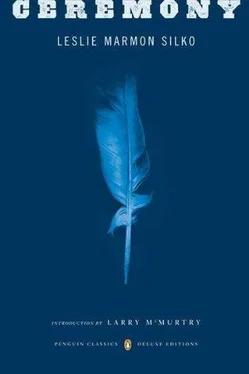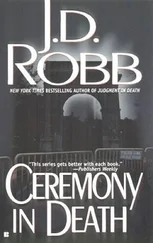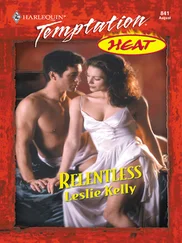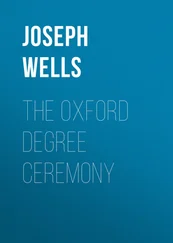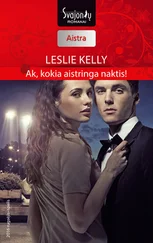He was sitting in the sun outside the screen door when they came driving into the yard. He had been looking at the apple tree by the woodshed, trying to see the tiny green fruits that would grow all summer until they became apples. He had been thinking about how easy it was to stay alive now that he didn’t care about being alive any more. The tiny apples hung on that way; they didn’t seem to fall, even in strong wind. He could eat regular food. He seldom vomited any more. Some nights he even slept all night without the dreams.
He went with them in the old Ford coupé. He laid his head back on the dusty seat and felt the sun getting hot on his shoulders and neck. He didn’t listen to them while they laughed and talked about how Emo bought the car. He didn’t hear where they said they were going. He didn’t care.
It was already getting hot, and it was still springtime. The sky was empty. The sun was too hot and it made the color of the sky too pale blue. He was the last one through the screen door at Dixie Tavern.
Harley pushed a bottle of beer in front of him. Harley said something to Tayo, and the others all laughed. These good times were courtesy of the U.S. Government and the Second World War. Cash from disability checks earned with shrapnel in the neck at Wake Island or shell shock on Iwo Jima; rewards for surviving the Bataan Death March.
“Hey, Tayo, you cash your check yet?”
Tayo pushed a ten dollar bill across the table. “More beer,” he said.
Emo was getting drunk on whiskey; his face was flushed and his forehead sweaty. Tayo watched Harley and Leroy flip quarters to see who was buying the next round, and he swallowed the beer in big mouthfuls like medicine. He could feel something loosening up inside. He had heard Auntie talk about the veterans — drunk all the time, she said. But he knew why. It was something the old people could not understand. Liquor was medicine for the anger that made them hurt, for the pain of the loss, medicine for tight bellies and choked-up throats. He was beginning to feel a comfortable place inside himself, close to his own beating heart, near his own warm belly; he crawled inside and watched the storm swirling on the outside and he was safe there; the winds of rage could not touch him.
They were all drunk now, and they wanted him to talk to them; they wanted him to tell stories with them. Someone kept patting him on the back. He reached for another bottle of beer.
White women never looked at me until I put on that uniform, and then by God I was a U.S. Marine and they came crowding around. All during the war they’d say to me, “Hey soldier, you sure are handsome. All that black thick hair.” “Dance with me,” the blond girl said. You know Los Angeles was the biggest city I ever saw. All those streets and tall buildings. Lights at night everywhere. I never saw so many bars and juke boxes — all the people coming from everywhere, dancing and laughing. They never asked me if I was Indian; sold me as much beer as I could drink. I was a big spender then. Had my military pay. Double starch in my uniform and my boots shining so good. I mean those white women fought over me. Yeah, they did really! I went home with a blonde one time. She had a big ’38 Buick. Good car. She let me drive it all the way.
Hey, whose turn to buy?
The first day in Oakland he and Rocky walked down the street together and a big Chrysler stopped in the street and an old white woman rolled down the window and said, “God bless you, God bless you,” but it was the uniform, not them, she blessed.
“Come on, Tayo! They didn’t keep you on latrine duty the whole war, did they? You talk now!”
“Yeah! Come on!”
Someone jerked the bottle out of his hand. His hand was cold and wet; he clenched it into a fist. They were outside him, in the distance; his own voice sounded far away too.
“America! America!” he sang, “God shed his grace on thee.” He stopped and pulled a beer away from Harley.
“One time there were these Indians, see. They put on uniforms, cut their hair. They went off to a big war. They had a real good time too. Bars served them booze, old white ladies on the street smiled at them. At Indians, remember that, because that’s all they were. Indians. These Indians fucked white women, they had as much as they wanted too. They were MacArthur’s boys; white whores took their money same as anyone. These Indians got treated the same as anyone: Wake Island, Iwo Jima. They got the same medals for bravery, the same flag over the coffin.” Tayo stopped. He realized the others weren’t laughing and talking any more. They were listening to him, and they weren’t smiling. He took another beer from Harley’s hand and swallowed until the bottle was empty. Harley yelled, “Hey, Mannie!” to the bartender. “Plug in the juke box for us!” But Tayo yelled, “No! No. I didn’t finish this story yet. See these dumb Indians thought these good times would last. They didn’t ever want to give up the cold beer and the blond cunt. Hell no! They were America the Beautiful too, this was the land of the free just like teachers said in school. They had the uniform and they didn’t look different no more. They got respect.” He could feel the words coming out faster and faster, the momentum building inside him like the words were all going to explode and he wanted to finish before it happened.
“I’m half-breed. I’ll be the first to say it. I’ll speak for both sides. First time you walked down the street in Gallup or Albuquerque, you knew. Don’t lie. You knew right away. The war was over, the uniform was gone. All of a sudden that man at the store waits on you last, makes you wait until all the white people bought what they wanted. And the white lady at the bus depot, she’s real careful now not to touch your hand when she counts out your change. You watch it slide across the counter at you, and you know. Goddamn it! You stupid sonofabitches! You know!”
The bartender came over. He was a fat Mexican from Cubero who was losing his hair. He looked at them nervously. Harley and Leroy were holding Tayo’s arms gently. They said something to the bartender and he went away. The juke box lit up, and Hank Williams started singing. Tayo got quiet. He looked across at Emo, and he saw how much Emo hated him. Because he had spoiled it for them. They spent all their checks trying to get back the good times, and a skinny light-skinned bastard had ruined it. That’s what Emo was thinking. Here they were, trying to bring back that old feeling, that feeling they belonged to America the way they felt during the war. They blamed themselves for losing the new feeling; they never talked about it, but they blamed themselves just like they blamed themselves for losing the land the white people took. They never thought to blame white people for any of it; they wanted white people for their friends. They never saw that it was the white people who gave them that feeling and it was white people who took it away again when the war was over.
Belonging was drinking and laughing with the platoon, dancing with blond women, buying drinks for buddies born in Cleveland, Ohio. Tayo knew what they had been trying to do. They repeated the stories about good times in Oakland and San Diego; they repeated them like long medicine chants, the beer bottles pounding on the counter tops like drums. Another round, and Harley tells his story about two blondes in bed with him. They forget Tayo’s story. They give him another beer. Two bottles in front of him now. They go on with it, with their good old times. Tayo starts crying. They think maybe he’s crying about what the Japs did to Rocky because they are to that part of the ritual where they damn those yellow Jap bastards.
Someone pats Tayo on the back. Harley wants to comfort him. They don’t know he is crying for them. They don’t know that he doesn’t hate the Japanese, not even the Japanese soldiers who were grim-faced watching Tayo and the corporal stumble with the stretcher.
Читать дальше
